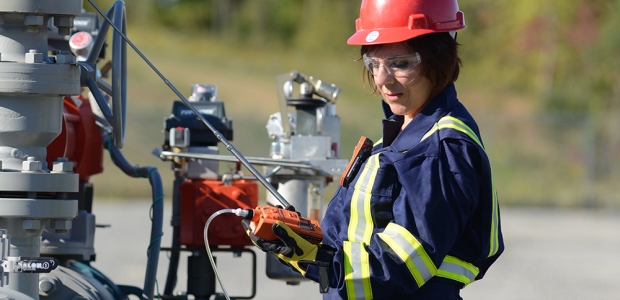The May 2019 conference and expo will take place in the only U.S. city to earn a place in the Wall Street Journal's top 10 places to visit in 2018, according to the 2018 Official Visitors Guide to the Twin Cities Area.
Federal, state, city, and medical partners of NIOSH are awaiting its findings about the stockpiled PPE. Researchers are in the second year of a three-year project.
An AIHce EXP 2018 session presenter analyzed a 2012 fatality inside a sewer valve vault that was 18 feet, 6 inches deep.

Two former OSHA staffers identified the agency's most-cited violations during 25 years of enforcement (1991-2015), presenting their findings at AIHce EXP 2018.
ASSE 2018 is just around the corner! The expo floor will be full of companies ready to announce, showcase, and demo their newest and most innovative safety products.
The Council presented the Excellence Award to Schneider National, the Innovation Awards to Brigham Health Sleep Matters Initiative, and the Advocate Award to Common Ground Alliance 811 Campaign during a ceremony on Wednesday in Chicago.
The Board’s report said the self-driving system data showed the vehicle operator engaged the steering wheel less than a second before impact and began braking less than a second after impact.

Information is missing from the operator’s manual about the proper ballast when the loader is attached to a John Deere model 2025R tractor. If improperly ballasted, the tractor can be unstable and create a risk of injury to the operator or bystanders.

Unfortunately for the individual user and the companies that mandate these monitors, there needs to be a correction. If not, there can be some dire consequences.
Safety professionals discussed their experiences in emergency response during and after hurricanes Harvey and Maria.
A poster at the AIHce EXP conference summarized findings from NIOSH assessments at construction sites in 10 states during 2007-2012.
This is the 32nd year for these key IH scholarships.
The AIHce EXP 2018 opening session on May 22 offered a stark look at the crisis. There were more than 65,000 overdose deaths, most involving opioids, in the United States during 2016.
Cannabis industry workers in Colorado have flocked to safety training events offered by the state’s Department of Public Health and Environment.
Whether or not you're able to attend ASSE 2018 this year in San Antonio, you can get an exclusive look at the show floor from the perspective of our Occupational Health & Safety editors. Our Live From ASSE 2018 webpage will feature aggregated social media from personalities and brands at the show as well as live multimedia coverage from the show floor.

Two forces are at work shaping the future of workplace safety: millennials and connectivity. This article looks at developments igniting this twin dynamic.
This year's honorees include Dr. Bennet Omalu, best known for having first identified the disease he named Chronic Traumatic Encephalopathy (CTE) in athletes who had competed in high-impact contact sports. He will receive the William Steiger Memorial Award.